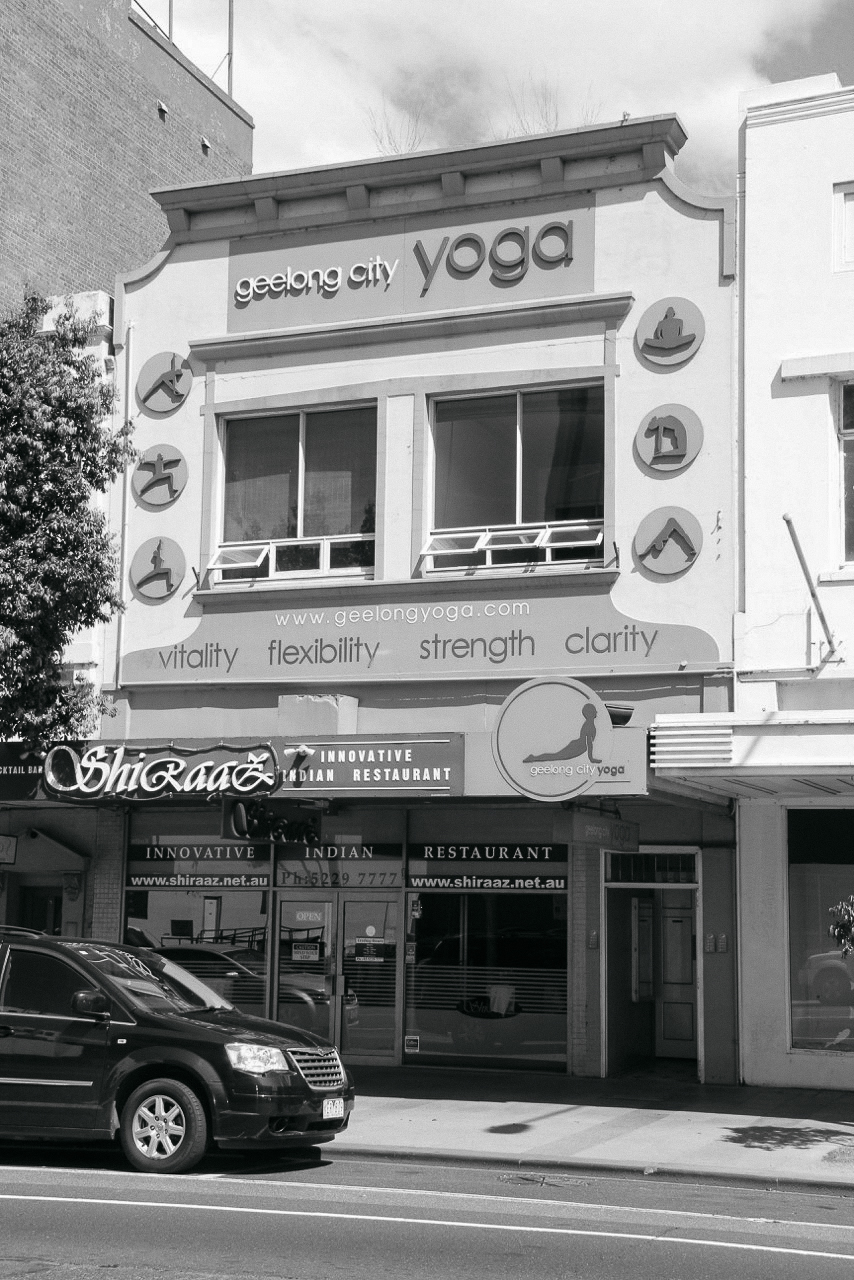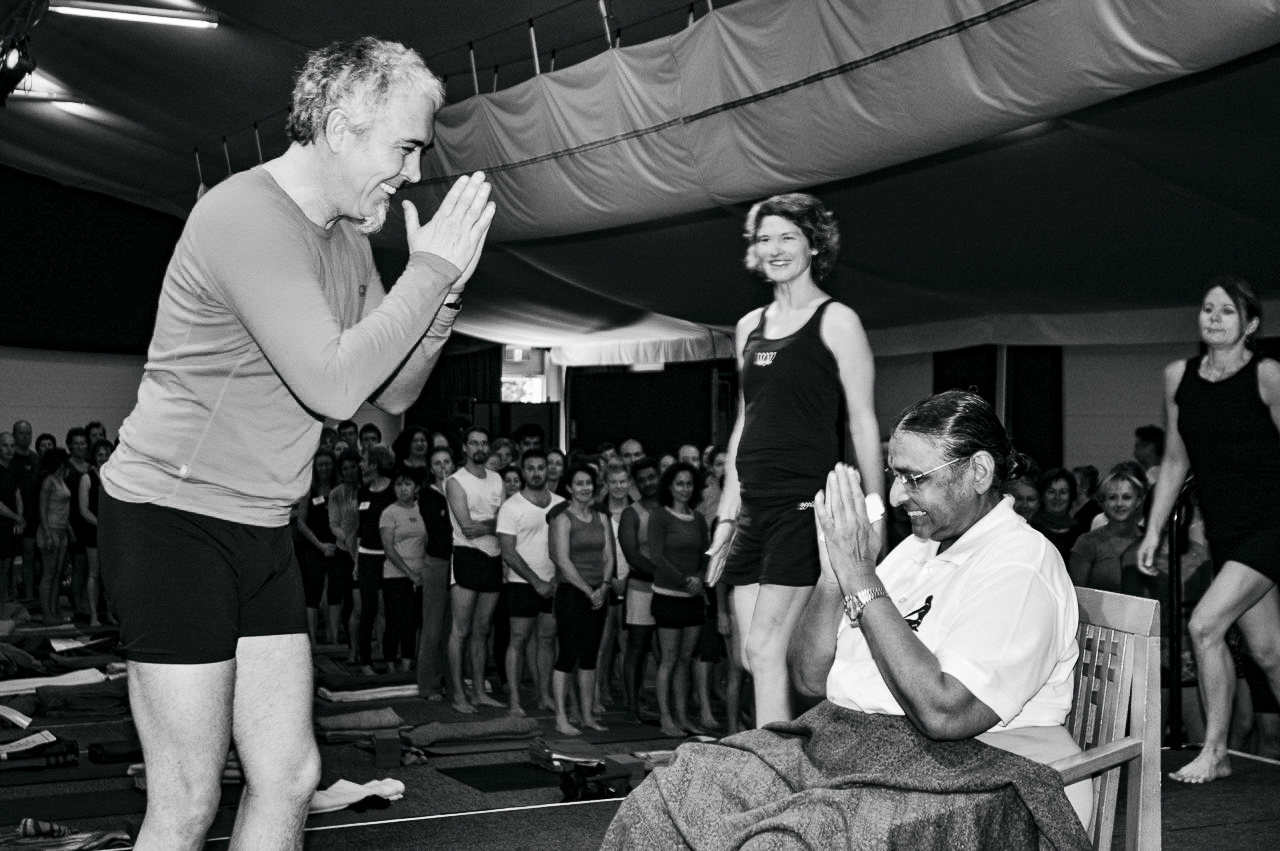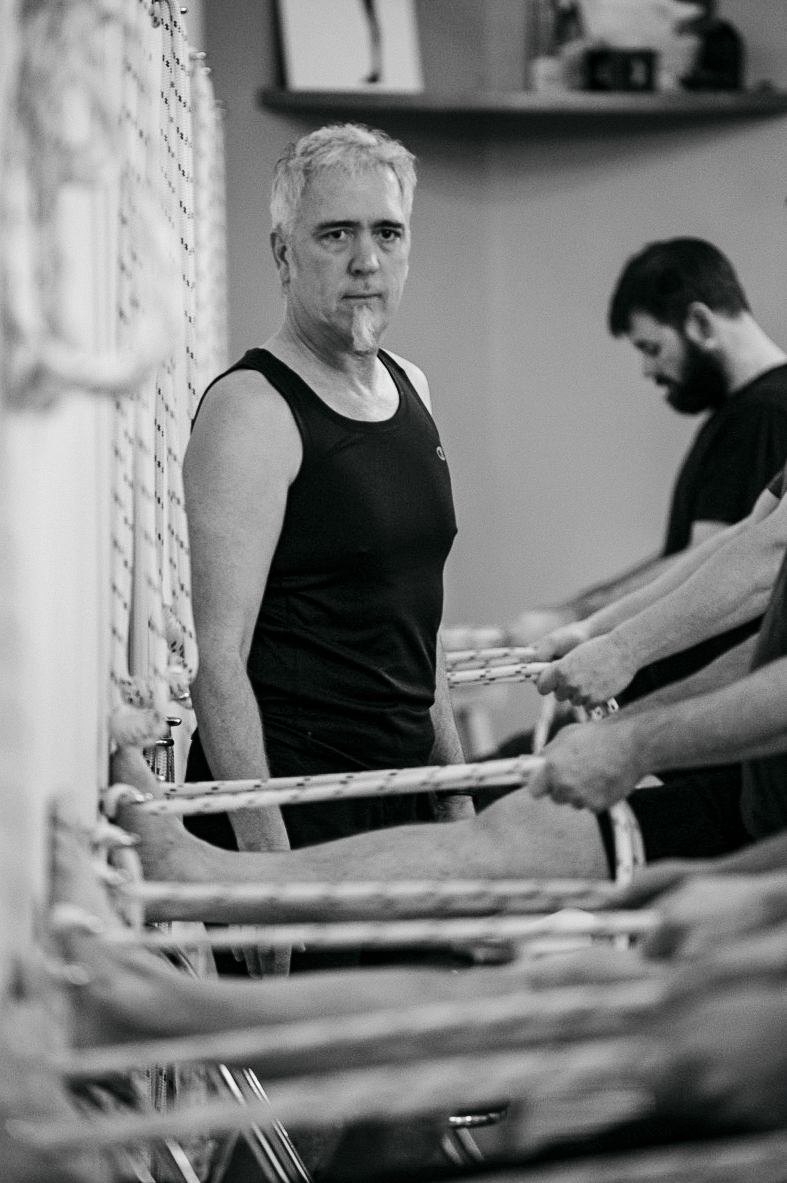
What is the most challenging thing about running a yoga studio?
Of course, there are all the challenges of running a business and making it viable, but I think one of the most challenging points is marrying that to your development as a practitioner, a teacher and being the one responsible for the unique culture of your school. I belong to the greater fraternity that is Iyengar Yoga, and I am the product of a senior teacher lineage (in my case Peter Scott). But understanding, developing and communicating to others how B.K.S Iyengar’s teachings manifest in me is the most fundamental and critical issue.
Not having the sufficient level of certification (I’m currently JI2) to run a teacher training program has been a real and frustrating handicap in the development of that process.
Not only does teacher training provide another income stream, though that would be useful, but more so that it would encourage progression, for me, for the student body and the school.
Over the years I have steered students keen to undertake teacher training towards senior teachers in Melbourne, which has had some success but on some occasions, they have discontinued because of the difficulties associated with having to travel or because I am their teacher and they wanted to develop under my tutelage.
All of this then leads to the issue of ‘staffing’. Over the years it has been challenging to staff the school with certified Iyengar Yoga teachers and when I have, they have often been of a different lineage to me and were not able to a provide a cohesive learning environment. They have never been students of mine or my school and have no inherent commitment beyond earning a wage.
It is in no way a criticism of those teachers, but they are not products of nor fully integrated into the culture of the school.
What is the most rewarding?
I have been in the same place for 14 years now. I have observed students go through all sorts of ups and downs and it gives me great satisfaction to witness how vital a constant practice and the school is to their wellbeing.
Through relationship dramas, marriages, pregnancies, family deaths, career upheavals and health issues, students often tell me that yoga is their time, on the mat and at the school that has enabled them to cope.
Like all schools, many students come through the doors a few times, and you never see them again; however, you see when someone is profoundly captivated by the possibilities that Iyengar Yoga has to offer, and you know that it will be with them for life. There is no better reward.
Describe your demographic.
Geelong is undergoing a shift, and so are those attending classes. Traditionally the average student has been close to 50 years old, but there are also some in their 20s and others in their 70s.
Predominantly women, though I suspect I have more men in my classes than most other schools given, I am one of the few male teachers around, and I even run a specific male class.
Over the last few years, people have been less inclined to drive into Geelong CBD to attend classes, and there are more and more yoga schools in the surrounding suburbs, so numbers have decreased.
However, we are starting to get a few younger students and more office workers coming to classes, particularly with the offer of our new lunchtime classes.
Until about four years ago, we operated purely on an enrolment basis, and most people enrolled for and attended one class a week. Now we have unlimited passes, and class credit and students attend two, three and even more classes per week.
We seem to get less of the fitness-oriented students into our classes than other schools. Not much Lululemon or fluoro tops in our classes!


How do you market your business?
We try to encourage ‘word of mouth’ referrals, and we hold regular events at the school, such as concerts, International Yoga Day celebrations to boost our profile.
We put flyers in some local businesses, and we always keep brochures outside the front door as we located in an area of high level of foot traffic.
We also write directly to surrounding corporations, and place editorial content in local media whenever possible but stopped paying for print ads some years ago. Increasingly we invest time and money into social media, predominately Facebook.
How do you feel Iyengar Yoga sits in the wider yoga community?
I sense that we are sort of begrudgingly respected but considered to be somewhat elitist, insular and not a lot of fun!
There are now quite a few new yoga schools around me and they nearly all seem to share a growing number of casual, mostly younger teachers who seem to do ‘cool’ somewhat better (than me at least!). Plus they are all offering teacher training programs.
What I can say is that very few people who come through my door for the first time have much knowledge about Iyengar Yoga, if they have even heard the term before.
They come in cold, or they have heard that Geelong City Yoga is the place to go if they have some physical issue or are a bit older. About 15 percent come looking for Iyengar Yoga, and even then, it is nearly always because they have practiced the method somewhere else.
What is your one (or most important) piece of advice for someone wanting to start a yoga school?
If you are starting a school, be clear that it will take over, or more accurately become your life. You will scarcely ever be able to go away for any length of time, and you will probably not make very much money, so you really need to love teaching! And like any other business, keep your overheads as low as possible!
Anything you would do differently if you started from scratch tomorrow.
It seemed much simpler when I started, or maybe I just had the energy and blind optimism of a younger man!
There were far fewer people doing yoga, but there was also much less competition. I started Iyengar Yoga in 1991 and did my teacher training in 94/95. Iyengar Yoga was the new, cool yoga; the yoga younger people were doing as opposed to the Hatha style that mums were doing in the dusty local hall. When I started the school in 2004, I didn’t doubt that it could work. There were no other permanent yoga schools in Geelong, and the Iyengar style was a strong currency. There were no social media platforms to negotiate, and the fitness and fashion industries had not overrun yoga. It had not yet been so commoditized.
If I were starting out tomorrow, I would want a reasonable amount of money behind me. I also firmly believe it requires a team effort of complementary skills. Finally, I would ensure that the school had a clear path to teacher training. I would not undertake to open a school unless either a partner in the business or I could offer teacher training or I had an understanding with a senior teacher to be able to provide training at the school.
What did you do before you became a yoga teacher/started a school?
Before starting the school, I worked a lot in community theatre and in organizing social and environmental projects.
